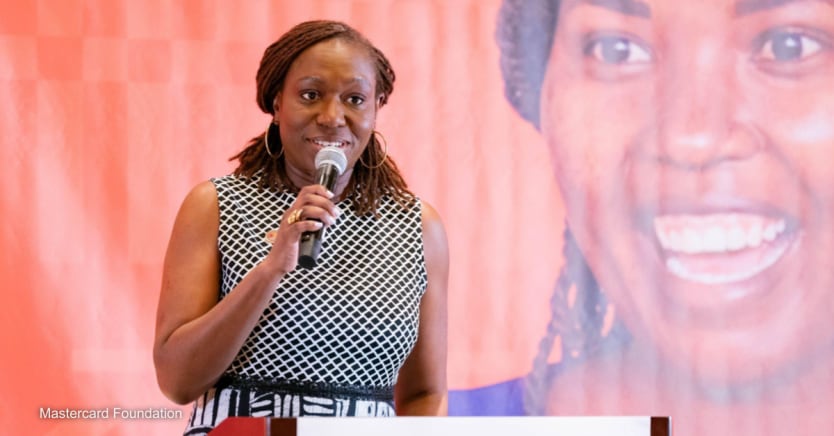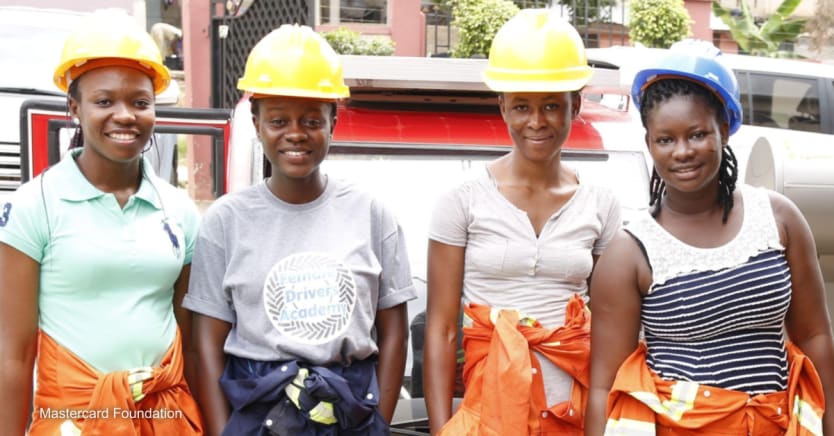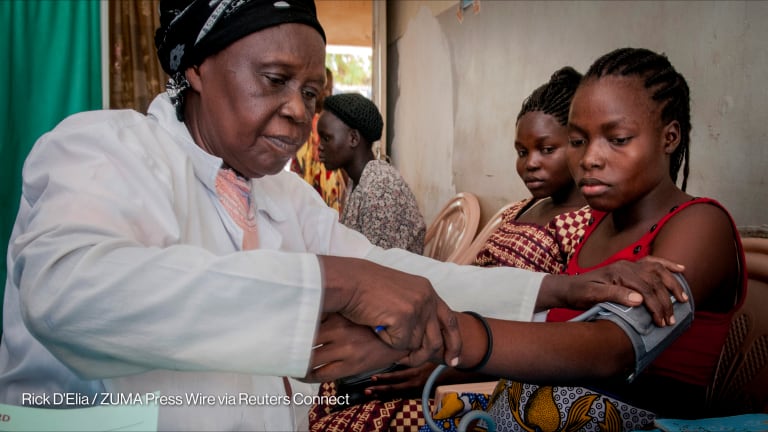
On the sidelines of the 79th session of the United Nations General Assembly, the Mastercard Foundation announced it is dedicating $360 million to support over 70,000 women and girls in completing their education, starting their own businesses, and accessing employment opportunities in Africa.
According to research commissioned by the foundation, young African women face significant barriers in meeting these goals. Only 26% of girls in Africa finish secondary school, 34% are married before the age of 18, and teenage pregnancy rates are continuing to rise.
The effect of not addressing these challenges is profound, as the study also revealed that young African women have the potential to add $287 billion to the continent’s economy and create 23 million jobs by 2030. But to make that a reality, young women and girls need access to education and opportunities for growth.
Women-led, education-focused NGOs such as CAMFED, or the Campaign for Female Education, and the Forum for African Women Educationalists, or FAWE, are focused on exactly that, which is why the Mastercard Foundation is continuing its partnerships and support with both organizations. The expanded partnership with the Mastercard Foundation will assist CAMFED in supporting 62,000 girls from Tanzania, Zambia, Zimbabwe, Ghana, and Malawi in accessing secondary and tertiary education, employment, and entrepreneurship, while FAWE will provide bursaries for women starting or innovating in a business.
“It’s all hands on deck – 2030 is around the corner. Twenty-three million young women in work means a stronger continent,” said Marieme-Esther Dassanou, director of gender programs at the Mastercard Foundation, explaining the broader benefit investing in young women has on society. “We don't get to the Africa we want without young women at the forefront of it.”
Sitting down with Devex in New York, Dassanou explained why the organization focuses on education and employment in Africa, how it is supporting the vision of increasing young women’s contribution to Africa’s economy, and what she believes needs to be done to enable Africa’s women and girls to reach their full potential.
This conversation has been edited for length and clarity.
What do you think needs to happen to make the $287 billion figure a reality?
It requires turning the tide. Contributions of young women have been declining. In the McKinsey and Mastercard Foundation support study, we found that in 2000, young women's contribution to the economy was 18% of the gross domestic product. In 2022, it was 11%. So it's been going down incrementally. The reasons why it's been going down include education. Young women and girls are educated in primary school, but afterwards, they tend to drop out in large numbers. You see the same trend in the second or third year of secondary school, and then an even lower percentage continue on to tertiary education.
The impact on work creation is that they don't have the skills, knowledge, or diplomas that would enable them to get into higher-wage employment, which would then increase their contribution significantly to the economy.
We also observe that when they drop out within a year or two, they are either married and pregnant or are now single mothers. One in 4 girls on the continent will have had a child by the age of 18. That means that they're poor for time, and their care responsibilities are significantly higher. This further hampers their ability to get into employment.
In the report, we also found that 34% of young women in the seven countries where the foundation has offices are not working because there are no care solutions for them. We also find that creating 5.3 million jobs in the care economy in Africa could lead to 11.4 million work opportunities for young women.

These barriers, together with the challenges that we've known for a long time, such as access to finance, make their ability to work and grow even more difficult. While some progress has been made on financial inclusion and, more specifically, access to finance for women entrepreneurs, we find that financial products are not customized to address the needs and realities of young women who mostly rely on informal financing such as village savings and loans. While these informal mechanisms are a good starting point, young women cannot grow and transform their income-generating activities into sustainable enterprises and create significant employment for others with them. Furthermore, they keep them in the informal sector. Enabling young women to access financing through customized products and services and enabling a graduation process is critical.
Finally, policy is a major enabler to accelerate young women’s ability to access work. Major strides have been made in reforming policies to ensure they are more gender-sensitive, but there's still a huge gap. Having the policies is one thing; making sure that the policies are implemented, and that progress is being measured, is another.
What are the most effective ways of keeping young women in school, equipping them with market-relevant skills, and retaining them in the workplace?
First, it's ensuring that they can stay in school through the full education cycle, from primary to secondary to tertiary. We notice that income is generally an obstacle to keeping girls in school. When school is no longer free, girls' chances of going and staying in school are negatively impacted. If parents in rural communities must choose who will go to school, they will choose the boy over the girl. This is due to cultural expectations that often place a higher priority on educating boys.
It is thus important to address mindsets regarding girls’ and young women’s education and its positive impact on family, community, and nation. In addition, developing avenues for girls and young women who have dropped out of school to access second-chance education programs would provide new opportunities for young women.
The Mastercard Foundation launched its Young Africa Works Strategy in 2018 to enable 30 million young people in Africa to access dignified employment by 2030. Can you share more about the strategy and how it plans to reach that goal?
As of July 2024, Mastercard Foundation data shows that we have enabled 4.2 million young women to access work opportunities since 2018. Our goal is to enable 21 million young women to access dignified and fulfilling work by 2030. To reach this goal, we will focus on three areas:
[First,] accelerating workforce development through access to education for girls and young women in partnership with organizations such as CAMFED and FAWE.
[Second,] increasing work opportunities through entrepreneurship by finding young women where they are and enabling them to start and grow businesses, entrepreneurship, and policy. On entrepreneurship, we want to make sure we're meeting young women in rural and peri-urban areas and ensuring they have access to the information, training, and finance needed to start robust, income-generating activities that can become strong businesses that create jobs for other young people in their communities.
Finally, policy is critical to providing an enabling environment that supports young women to thrive. This requires increased dialogue with community leaders, men and boys, and private and public sector participants to ensure that we are accelerating the implementation of gender-responsive policies and enhancing the understanding of the economic opportunities for young women in work.








